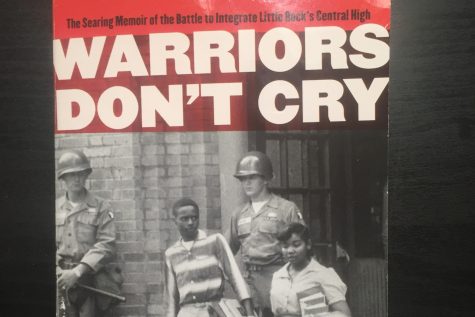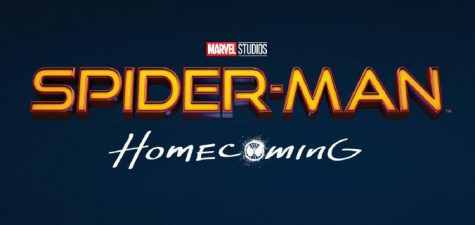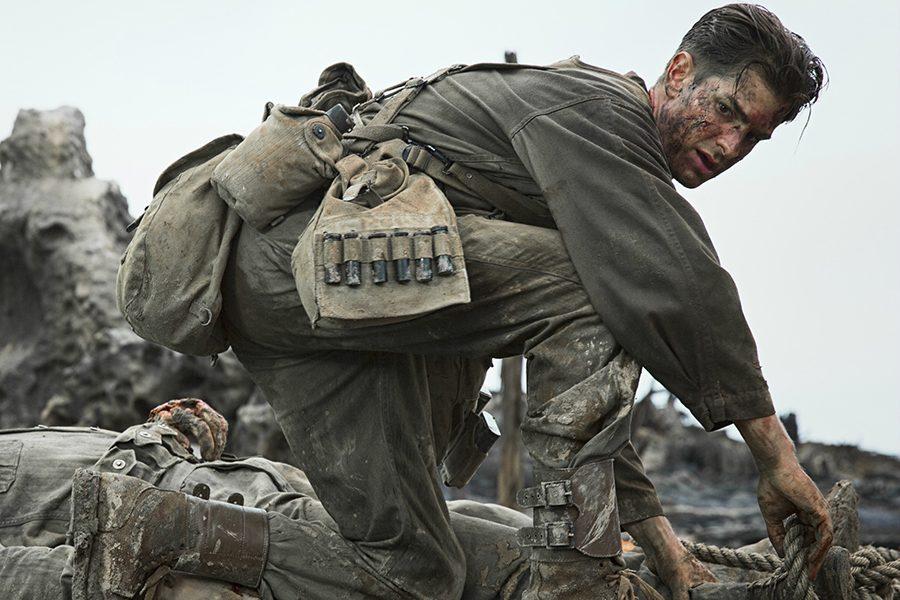Hacksaw Ridge
A review of the directing choices, cast, and score.
-SPOILER ALERT-
Directed by Mel Gibson, Hacksaw Ridge is the story of Desmond Doss, a conscientious objector in World War II who signed up for the army as a medic. Despite his refusal to carry a weapon, he managed to save 75 lives at the battle of Hacksaw Ridge. This (along with several other unbelievable feats of heroism) made Desmond Doss the first conscientious objector to receive the congressional medal of honor.
Gibson’s portrayal of Doss’s world varies when comparing the bright lighting, romance and comical banter in boot camp against the chaos and malicious destruction that takes place on the battlefield. Rather than taking away from the seriousness of the story, this contrast exhibits just how foreign war is from the daily life of an average American. The sunny forest that Desmond is accustomed to is a dream compared to the mutilated remains of bodies being eaten by rats on the battlefield, and the contrast is felt deeply by viewers and critics alike. Specific choices in camera angles and shots also work to bring true meaning to this production. From the slow, straight on look at Doss’s bruising face at boot camp in his own country, to the long, angled view of blood being washed away like sin once he has pulled dozens of men from the wreckage at Hacksaw, these shots artfully highlight Doss as being unique not only because of his beliefs but because of his actions. The symbolism, irony, purposeful camera angles, and powerful contrasts that pulse through this movie create an atmosphere impossible to ignore.
Andrew Garfield takes on the huge role of the real hero, Desmond Doss. His young face and vibrant personality help him to take on the character with a combination of innocence, courage and humility that captivates audiences immediately. Other cast members include Theresa Palmer (Dorothy Schutte), who’s charm and dedication ties audiences back to Doss’s dream-of-a-life waiting for him in the States, and Luke Bracey (Smitty Ryker), who acts as a foil to Doss as the tough, fearless fighter who inevitably becomes Doss’s closest partner and friend in battle. But as stated in the film, “A chain is only as strong as its weakest link.” Vince Vaughn’s (Sergeant Howell) comedic characteristics overshadow his role of a relentless and unforgiving Sergeant. As the movie progressed, Vaughn begins to live up to his character as the grit of the battle hits him directly, allowing the harrowing rescue Doss performs to truly ring through. Vaughn’s characteristic sense of humor simply creates a slight hiccup in the otherwise seamless expression of war.
The score is used on the battlefield to show the constant noise and chaos on the field, the hope that Doss carries with him and the overall suspense that looms over all soldiers. The use of stringed instruments as a way to keep viewers at the edge of their seats was done tastefully, and the use of strong drums could even be deemed poetic. Rather than overdone blaring music, the score for Hacksaw Ridge remains respectfully haunting and melodious, highlighting the important moments without overshadowing them.
With a score that leaves chills, an all-star cast and a story that is unforgettable even when it stands alone, Hacksaw Ridge proves to be an overall incredible portrayal of war, belief and of the heroics of a young conscientious objector.
Your donation will support the student journalists of Cypress Woods High School. Your contribution will allow us to purchase equipment and cover our annual website hosting costs.







Bennett Richardson • Feb 27, 2017 at 7:46 PM
Great review!